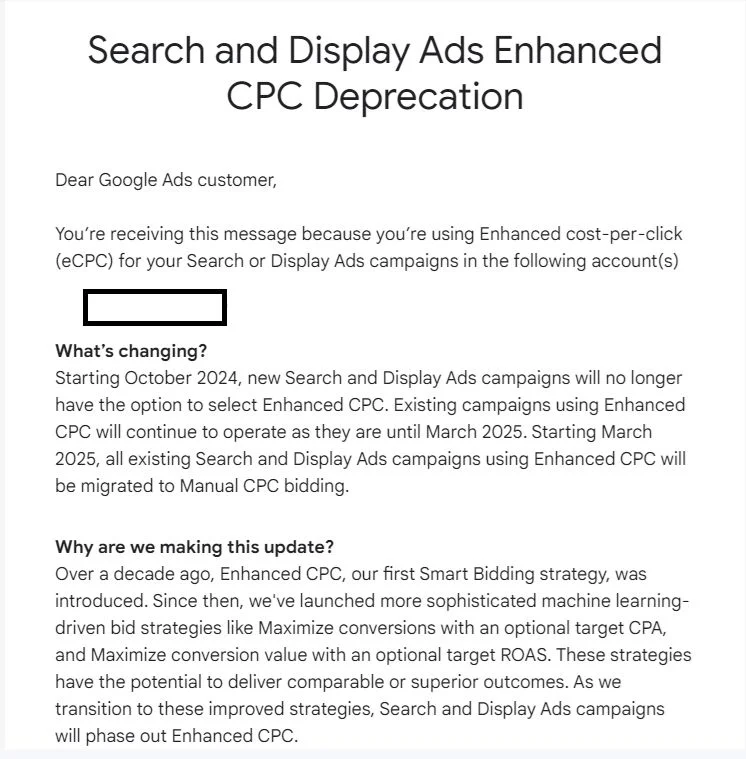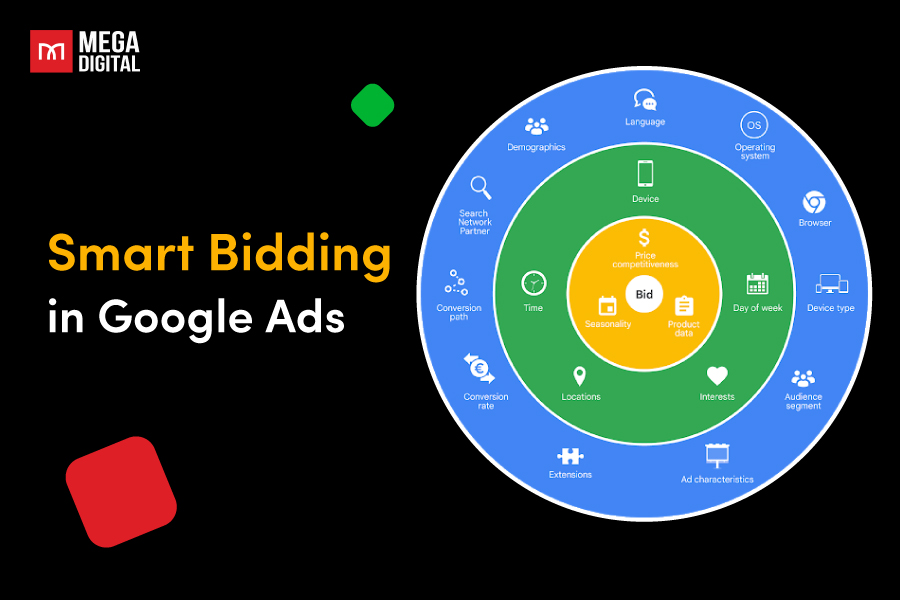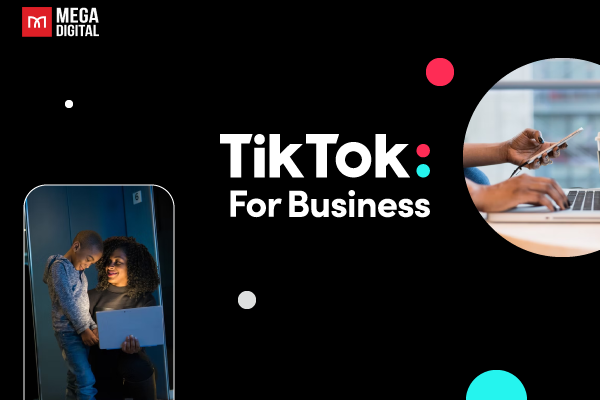Google is making a significant shift in its advertising platform, announcing plans to phase out the Enhanced cost-per-click (eCPC) bidding strategy for both Search and Display campaigns. This change will be rolled out in two key phases: by October 2024, new campaigns will no longer have the option to use eCPC, and by March 2025, all existing campaigns will be transitioned to Manual CPC. This move underscores Google’s commitment to pushing advertisers towards more advanced, machine learning-driven bidding strategies.

Key Dates to Remember:
- October 2024: Enhanced CPC will no longer be available for new Search and Display campaigns.
- March 2025: Existing campaigns using Enhanced CPC will be automatically switched to Manual CPC bidding.
Why Is Google Phasing Out eCPC?
Google’s decision to retire eCPC is driven by the evolution of more sophisticated bidding strategies. Tools like Maximize Conversions (with an optional target CPA) and Maximize Conversion Value (with an optional target ROAS), have shown the potential to deliver better results, thanks to their reliance on advanced machine learning. These strategies are designed to optimize for conversion goals more effectively than eCPC.
Recommended Next Steps for Advertisers:
With the retirement of eCPC, advertisers need to consider alternative bidding strategies that align with their campaign goals. Here are some suggested adjustments:
- For Conversion-Focused Campaigns: Transition to maximize conversions or maximize conversion value strategies.
- For Non-Conversion Goals: If your campaigns are not conversion-driven, Maximize Clicks could be a viable alternative.
- Automatic Adjustments: Display campaigns currently using Maximize Clicks with eCPC will be transitioned to the Maximize Clicks strategy in March 2025.
Industry Impact and Strategic Considerations:
This change simplifies the decision-making process for advertisers, reducing the available options to either Manual or Smart bidding strategies. The move away from eCPC also reflects Google’s recognition of its limitations, favoring more advanced, automated solutions.
Despite this shift, Google will retain Manual CPC bidding, likely as a nod to advertisers who prefer maintaining tight control over their campaigns. However, the industry should expect broader changes as Google continues to refine its auto-bidding capabilities.
Action Plan for Advertisers:
- Reassess Your Bidding Strategy: Conduct a thorough audit of your current strategies. If you manage fewer than 50 conversions per month, consider using Maximize Clicks with a bid cap. For higher conversion volumes, maximizing conversion value may be more appropriate.
- Review Conversion Actions: Ensure that your primary conversion actions are correctly set up, as these will directly influence your new bidding strategy.
- Recalibrate Budgets: Align your budgets with the new strategies, considering the potential for underbidding with Manual CPC or increased costs during the learning phase of Smart Bidding.
- Prepare for the Transition: Allow time for adjustment to the new bidding dynamics and be prepared to exclude initial data during the learning period of these new strategies.
Final Thoughts
This change is a clear indication of Google’s push towards more intelligent, machine-learning-powered advertising solutions. While the transition may require some adjustments, it also allows for improved campaign performance and efficiency. Advertisers should use this time to reassess their overall Google Ads strategy, ensuring they are well-positioned to take advantage of these more advanced bidding tools.
In the long run, the phase-out of eCPC could lead to more streamlined and effective advertising strategies, helping advertisers achieve better results with less manual effort.










